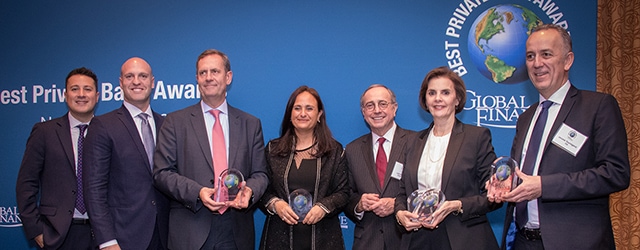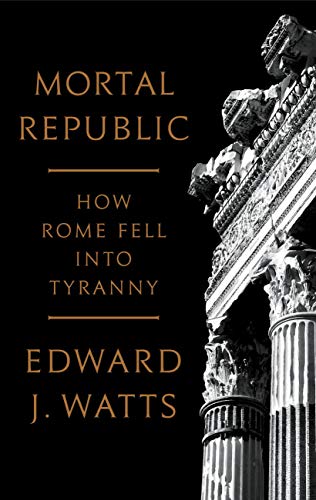At Global Finance’s annual Private Bank Awards dinner, wealth management specialists accepted honors on behalf of their banks and pondered history.

An elite group of international bankers assembled at the Harvard Club in Manhattan last month to celebrate the Global Finance Best Private Bank Awards for 2019. Finance executives from around the world, along with attorneys, journalists and other guests, gathered in the elegant Gordon Reading Room for cocktails, industry talk and socializing before heading upstairs for a gourmet dinner followed by coffee and post-prandial cocktails.
Guests came from more than two dozen countries around the globe, representing all five continents. The highlight of the evening for most attendees was presentation of the awards. France-based BNP Paribas took the top honor of Best Private Bank in the World, with Sofia Merlo, BNP’s co-CEO of wealth management, offering brief remarks upon accepting. The bank is seeking ways to appeal across generations and countries, she said, through digitization with a human touch; tailored investment offerings that target clients’ sustainable development and diversity goals; and bank-sponsored, cross-border gatherings—including one that draws high net worth women from across the globe.
“A bank is not only about financing and investing,” Merlo said. “It can also give clients the capacity to do more business among themselves in Europe, Asia and the United States.”
Rising global risk is top of mind for private bankers and their clients, given the poor market returns of 2018, signs of economic stagnation and political uncertainty.
“Venezuela, China: You look around the globe and nothing is normal anymore,” said Dan Wright, managing director of private-wealth management at CIBC FirstCaribbean. “There are many reasons why high net worth people want their money held outside their jurisdiction.”
For Nigerians, preservation of wealth is a primary goal, due to currency depreciation, 2019 elections and worry about “keeping democracy going,” said Idowu Thompson, who heads private banking at First Bank of Nigeria in Lagos.
Across the room, under paintings of past Harvard leaders, Joo Myung-hee, general manager at KEB Hana Bank in Seoul, said she is monitoring the US-China tariff disputes. She thinks the battle for hegemony “won’t be solved soon.” The more immediate concern is projected deterioration in corporate profit growth. Weakness, especially in South Korea’s dominant semiconductor industry, is causing investors to steer clear. “We advise clients to invest in developed rather than emerging countries, and to invest in dollar assets and structured, equity-linked securities,” she added.
In India,wealth managers need to help clients better understand and prepare for risk in a domestically focused growth market that has produced outsized returns, said Anshu Kapoor, head of Edelweiss Private Wealth Management in Mumbai.

Edward J. Watts, a history professor at the University of California, San Diego, delivered a well-received keynote speech based on his book, Mortal Republic: How Rome Fell Into Tyranny. Rome, one of the world’s first great republics, collapsed under the weight of problems similar to those facing many economies today, Watts explained, including autocracy, corruption, expensive wars and a growing wealth gap. When Rome’s leading citizens increasingly put their own interests above the health of the republic, Rome found itself unable to change policies to meet changing circumstances. Eventually, Romans chose the perceived security of authoritarianism over the chaos and violence they were experiencing as the Republic’s representative democracy deteriorated.
After a pause, a brief but lively question-and-answer session followed. One private banker asked how the French government can address “yellow vest” demonstrators (gilets jaunes), who lack the traditional leadership of a union or political party. Watts said the concept of national conversations is an “interesting” way for the French government to find compromise. “Modern republics can be saved,” he said, “if modern citizens realize they can die, and then they do something.” Many attendees lined up at the postprandial coffee hour for a signed copy of Watts’ book.
The importance of smooth transitions was not lost on the audience of wealth managers contemplating the pending generational wealth transfer and the occasional challenge in conveying the value of estate planning. “Most of India’s wealth is in its first or second generation. The handoff needs to happen in the next few years, in a patriarchal society with [just] a few people in control,” said Edelweiss’ Kapoor. “Wealth management has to evolve.”
Wise words. In order to deliver clients effective service in this rapidly and constantly evolving world, private banking must adapt to the changing environment. The world’s top-ranked banks have strong histories, but are reshaping the future based on lessons from the past.



